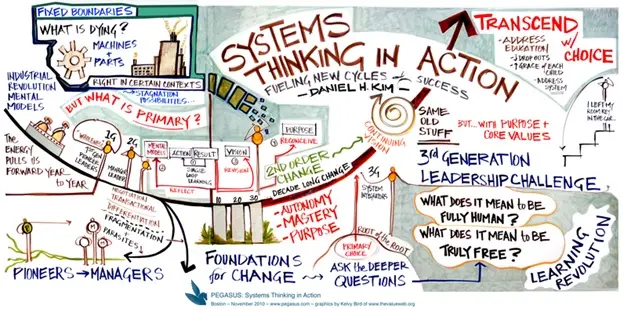Fostering Community and Student Engagement
By Natalie Krivas (English) & Stacy Hoult (World Languages & Cultures)
For the past year, a group of Valpo faculty and staff have been meeting as a Faculty Learning Community (FLC) to discuss Fostering Community and Student Engagement. FLC members learned about and experienced the Solutionary Process, to “identify inhumane, unsustainable, and unjust systems and then develop solutions that are healthy and equitable for people, animals, and the environment” (Weil, 2021). The two of us who served as FLC leaders, Natalie Krivas and Stacy Hoult, received our formal education in humane education at Valpo through a joint partnership with the Institute for Humane Education.
During the fall semester, participants learned about the Solutionary Process, which encourages thinking about the world through the “systems lens.” We examined case studies from educators who have implemented the Solutionary Process into their curriculum and learned how to tap into networks for collaboration and support.
Participants from diverse academic departments and staff units considered how the innovative Solutionary Process might be infused into their course, unit or project. Lisa Jennings, Director of the CORE Program, found the FLC helpful as she considers curricular content and approaches to Valpo’s first-year experience. Kat Peters, Assistant Director of the Institute for Leadership and Service, is thinking through how the Solutionary Process might be applied to current challenges at different levels of the University. She appreciates collaborating with colleagues from across departments to impact student experiences while addressing complex real-world issues.
Alberto López Martín (Spanish) has found that learning more about solutionary practices has helped him better organize some topics and activities he had been using in his courses. He adds: “I look forward to implementing ideas for final projects with practical applications that could be beneficial for our campus and the community at large.” Catrina de Rivera (German) plans on using the Solutionary Process to create a stronger sense of community involvement in her classes.
Through her pilot version of CORE 110, Stacy Hoult (Spanish) is guiding first-year students through the Solutionary Process. Stacy appreciates the thoughtful questions from diverse faculty and staff as they consider the benefits and potential challenges of bringing this approach to their classes and other elements of the Valpo student experience. Solutionary projects necessarily involve teaching and learning about topics that may be difficult and triggering for students and instructors. That is why we have also discussed how to foster a supportive and compassionate community of learners.
Through the FLC, Natalie Krivas (English) has appreciated learning how to get students engaged in thoughtful dialogue. She has found that the process has also helped with building a classroom community. Through her dissertation research study, Natalie shared the experiences of educators and their observations of students as they engaged in a large-scale solutionary initiative across San Mateo County Unified Schools. She hopes to learn about how the Solutionary Process can be successfully implemented in undergraduate education.
Throughout the spring semester, FLC participants are continuing to develop and implement our own solutionary curriculum. We are thinking creatively about curriculum design, troubleshooting, as well as developing ways to emotionally and socially support students along the way.
